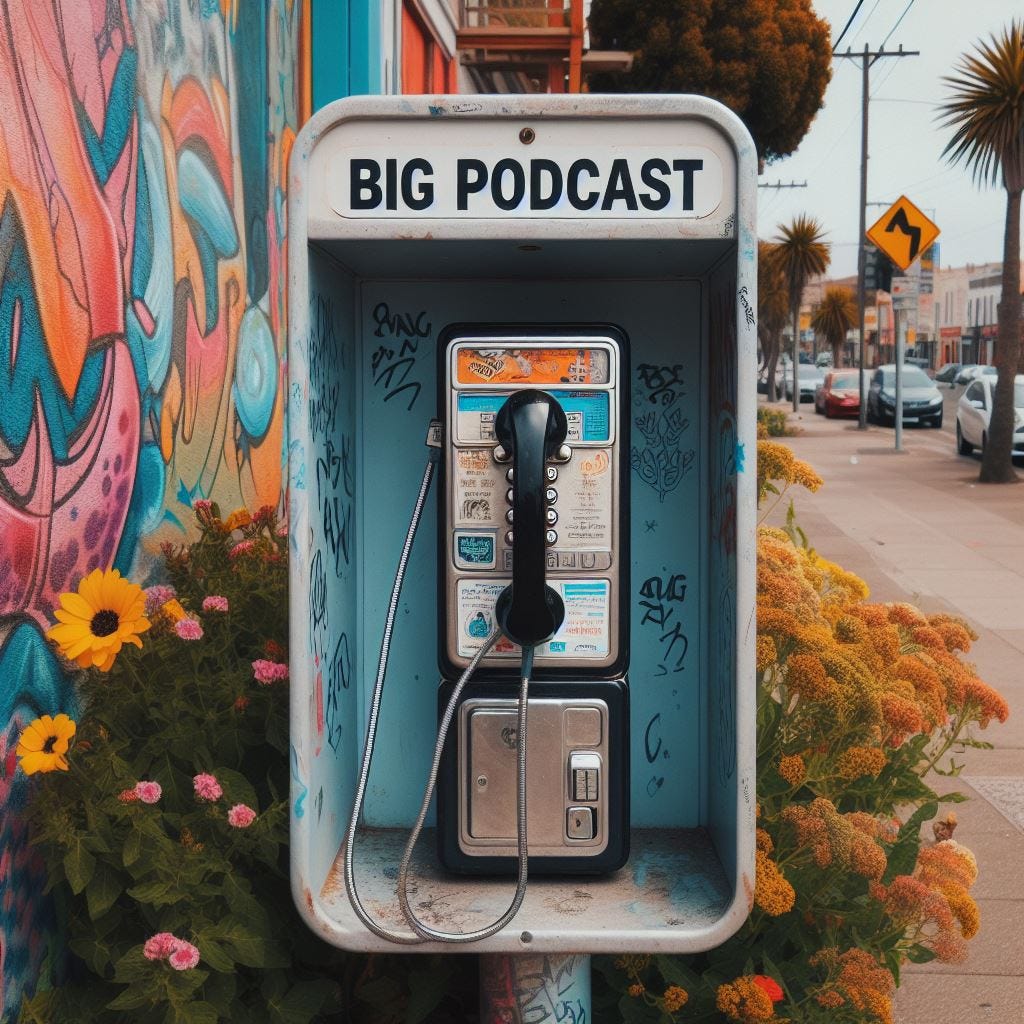These Speaking Tips Will Make You a Better Podcaster
Ted Gioia's 10 Rules of Public Speaking. I love these rules.
Here’s the rundown:
The podium is death
Invade the audience's space
Embrace spontaneity, especially when it seems risky
Remember that the audience wants you to succeed
Don't shy away from humor
Slides are unnecessary, but if you use them, deal with the consequences
Tap into your own craziness
Don’t be shy about giving your roadmap to the audience
Study other speakers (or podcasters) and borrow their best techniques
Be a rock star and savor the moment
Some thoughts on how these relate to podcasters …
Embrace spontaneity—rule number three—is crucial for a great podcast. Many podcasts stick to scripts or pre-planned questions: "I’ll ask this, then this."
While a thorough plan can help a podcast initially, especially with a new or upcoming host, it can become a crutch. When I started in radio with long-form shows, I planned everything out of fear. I wanted to get through the hour-long episode, I didn’t want dead air, and I didn’t want to look foolish. But if someone says something intriguing and you’re glued to your script, you miss great opportunities.
Imagine someone says they were crossing the border, a drug dog is called over, and at that moment, the person sees a package in the backseat, which was left by a hitchhiker. If during a pause, you go to “your next question,” something completely unrelated, you will lose listeners, because they want to know more about what happened.
Embrace spontaneity, follow the conversation, and trust yourself to get back on track.
This ties into rule six: slides are unnecessary. You have seen this in live events! Slides can pull you off-topic just when things get interesting.
Don’t do something similar with your podcast. For an experienced host, a loose outline is better than a tight one.
A final thought on this list … Rule five: don’t be afraid of humor. Just this week, I chatted with my radio producer about our editor Stephanie and how much I rely on her when things go awry—especially with humor. Sometimes jokes land; sometimes they don’t.
If something doesn’t work, edit it out. This is the beauty of editing—you can take risks knowing there's a safety net.
The “safety net” is the big takeaway here. We have a huge safety net in podcasting, so let’s use it. This lets us play just a little harder, learning just how far we can go when asking questions, using humor, and otherwise trusting ourselves.
Keep going! The most episodes you do, the better you get. If you stretch yourself on each one, slowly, but surely, your baseline ability will expand and you will become a better host.



